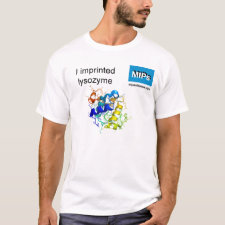
Authors: Pan GQ, Guo QP, Cao CB, Yang HL, Li B
Article Title: Thermo-responsive molecularly imprinted nanogels for specific recognition and controlled release of proteins.
Publication date: 2013
Journal: Soft Matter
Volume: 9
Issue: (14)
Page numbers: 3840-3850.
DOI: 10.1039/C3SM27505A
Alternative URL: https://www.researchgate.net/publication/259357673_Thermo-responsive_molecularly_imprinted_nanogels_for_specific_recognition_and_controlled_release_of_proteins
Abstract: Intelligent nanogels which respond to environmental stimuli with on/off characteristics hold great promise in a number of biomedical applications including drug/gene delivery, diagnostics and therapeutics. Here, we report the synthesis and characterization of a novel type of thermo-responsive nanogel built using the molecular imprinting technique for specific recognition and controlled release of proteins. Using lysozyme as the protein template and N-isopropylacrylamide as the major monomer, protein-imprinted spherical nanogel particles were readily prepared via aqueous precipitation polymerization with the aid of a surfactant, sodium dodecyl sulfate (SDS). Simply by adjusting the SDS amount during polymerization, the size of nanogels could be finely controlled, ranging from a few hundred down to a few dozen nanometers. Compared to non-imprinted counterparts, the lysozyme-imprinted nanogels possessed higher rebinding capacity, more rapid rebinding kinetics, and much higher specificity toward lysozyme. Importantly, both the rebinding and release characteristics of lysozyme-imprinted nanogels showed dramatic temperature-dependence, with clear on-off transition around 33 °C, i.e., the volume phase transition temperature of the thermo-responsive polymer poly(N-isopropylacrylamide). Therefore, we have developed a facile yet versatile approach to fabricate molecularly imprinted nanogels of well controlled sizes and thermo-responsive binding/release properties toward specific biomolecules, which may facilitate a broad spectrum of applications ranging from bioseparation and biosensing to drug delivery and therapeutics
Template and target information: protein, lysozyme



Join the Society for Molecular Imprinting

New items RSS feed
Sign-up for e-mail updates:
Choose between receiving an occasional newsletter or more frequent e-mail alerts.
Click here to go to the sign-up page.
Is your name elemental or peptidic? Enter your name and find out by clicking either of the buttons below!
Other products you may like:
 MIPdatabase
MIPdatabase









